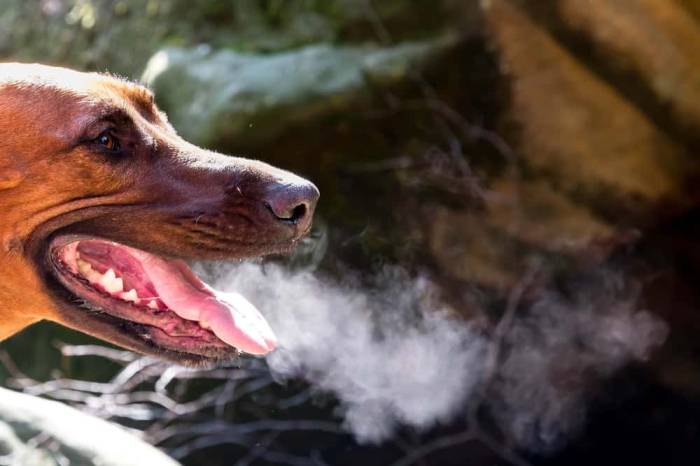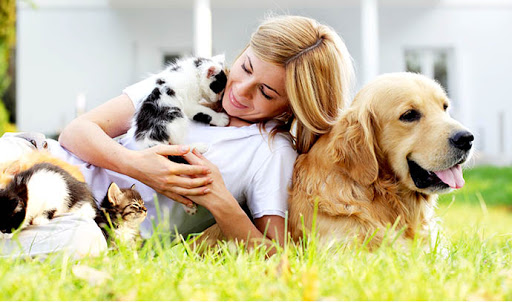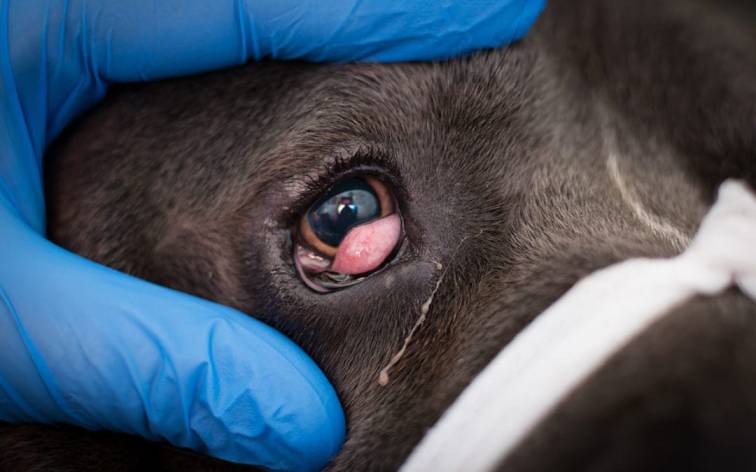Weight loss in older dogs can be entirely normal. It may slowly happen over time, and you hardly notice it. However, there are other times when a senior dog loses weight suddenly and noticeably. No matter what, any weight loss should be evaluated by the vet.
Connect with a verified veterinarian in minutes. Licensed vets are available 24/7 to answer your questions. No need to worry about your furry family member.
The reason your dog’s weight loss needs to be checked is that it may be caused by an underlying health issue. Some of these are more serious than others. If your dog has lost more than 10% of his normal weight, then it’s time to call the vet.
What Causes an Older Dog to Lose Weight?
Weight loss in older dogs can be caused by several different issues, including:
- Too much physical activity and not enough calories in the dog’s meals.
- Metabolic issues, which can make the dog burn more calories than normal. This issue is usually caused by an underlying health problem.
- Poor quality diet/not enough dog food at each meal.
- Loss of nutrients due to vomiting and diarrhea, excessive urination
- Malabsorption and/or maldigestion disorders (food is not absorbed or digested properly).
- Stress & anxiety from changes in the environment or family
- Traveling, which can cause stress & anxiety
- Finicky eating, which can happen when a dog becomes tired of his food, loses his sense of smell & taste, etc.
- Underlying illness/pain
- Dental problems keep the dog from eating due to pain
- Canine cognitive dysfunction, which is a type of canine dementia.
- Dehydration can cause dogs to lose weight because they’re not drinking enough.
These are only some of the causes that may cause a dog to lose weight. There are many illnesses that can affect an older dog’s appetite. We mentioned some in the list above; however, there are others, including:
Diabetes: in this case, the older dog can’t use glucose to fuel their body. Instead, the dog’s body uses stored fat and/or proteins (muscles, for instance) to provide your dog’s energy.
Liver disease: may cause sudden weight loss. The dog may develop jaundice (yellowing of skin and eyes), which is an indication the liver has a problem.
Heart disease: this is more common in senior dogs; however, the good news is that it can usually be treated. The dog may have a chronic cough, lethargy, be tired, and more if he has heart trouble. However, these symptoms can also be caused by other health issues.
Intestinal disease: it’s possible a dog’s intestines are not working well, which can lead to weight loss. It’s also possible a dog has been infected by certain parasites, which can lower a dog’s weight.
Cancer: dogs can suffer from different types of cancer, just like we can. The symptoms will vary and may not be visible. Weight loss is not always due to cancer; however, it can be a sign of this disease.
There are many reasons an older dog may lose weight. This is why it’s imperative to have your dog checked by the vet. The vet will look for the underlying cause and how it needs to be treated in your senior dog.
If the vet finds your dog is otherwise healthy, then they may recommend some of the following solutions. These can help your fur baby pack on the pounds!
Help Your Dog Gain Weight
Always follow your vet’s advice when it comes to your dog’s weight loss. Ask them questions about ways you can help get your fur baby to eat again.
As long as the vet has found your dog is healthy, then you may want to consider these methods for getting your dog to gain weight:
Provide moist/wet dog food: adding some moisture to your dog’s food can get him interested in eating again. If he’s suffering from a lack of smell and taste, then adding moisture can help. This can also help if your dog has missing teeth. The wet food is easier to chew.
You can try canned dog food such as Hill’s Science Diet Senior Wet Dog Food. This canned dog food is specially formulated for senior dogs. It helps maintain lean muscle, is easy to digest (and chew), and contains only natural ingredients that are healthy for dogs.
Another option is to use a product such as Brutus Bone Broth for Dogs. The bone broth is filled with precious glucosamine and chondroitin, which support healthy joints. It’s made from natural ingredients and is packed with the flavor and nutrients your dog needs. The broth also makes your dog’s food easier for him to eat.
Switch dog food/feeding schedule: if this is OK with the vet, you may consider switching over to different dog food that offers more calories. Usually, the foods marked as “all life stages” provide more calories than dog food for older dogs. You could consider a dog food such as Purina ONE SmartBlend Vibrant Maturity, which is made for dogs seven years and older.
Another option is to add a little more of your dog’s regular food to each feeding. And if your dog normally eats twice a day, then it may be helpful to add in one or two additional small meals during the day.
Reduce your dog’s exercise each day: this can also be helpful in your dog gaining weight. By reducing the level of your dog’s exercise, his body will have a chance to regain the weight he’s lost. However, be sure he still gets exercise. Even senior dogs need to stay somewhat active. Be sure to ask the vet about the proper level of activity for your dog.
Provide mental stimulation & emotional support: if your dog seems to be losing weight due to boredom, anxiety, and stress, then be sure to spend more time with him. And make sure your fur baby has plenty of toys to keep him stimulated. Nothing is better than spending time with you to improve your dog’s mood and eating!
Remember, if your older dog has noticeably lost weight, then it’s time to see the vet. The vet will determine if there are any underlying health issues that need to be treated. It’s also essential to work with your vet to find the right solutions to help your older dog gain weight again. Always follow your vet’s advice and guidance. And don’t hesitate to ask them about the right solutions for your older dog.
Connect with a verified veterinarian in minutes. Licensed vets are available 24/7 to answer your questions. No need to worry about your furry family member.

Kyoko
Kyoko is from a family of 3 and moved to New York with her parents and siblings when she was 13. Kyoko is fond of spending a great amount of time with pets, specifically her beagle Luna and cat Missy. Her boyfriend often complains that she spends too much time giving attention to their animals. Kyoko has written dozens of articles concerning pets and is aiming at owning a pet shop one day!
Review symptoms, medications & behavior to keep your pets healthy with a Vet Online in just minutes.
Ask a Vet Live Now



